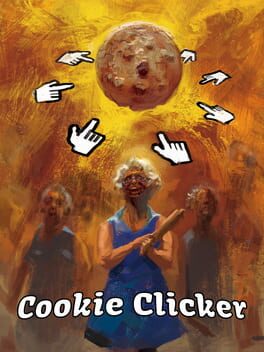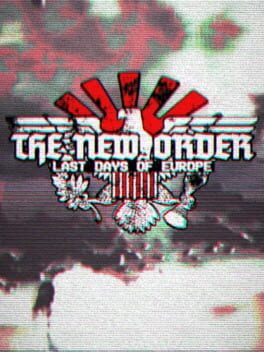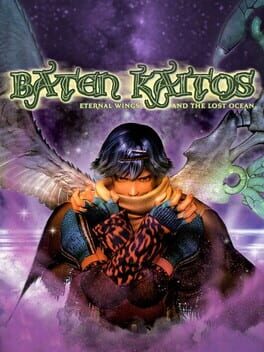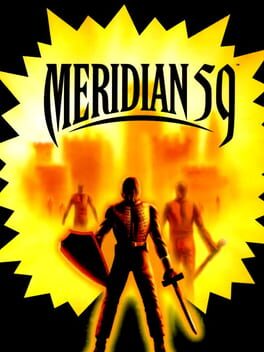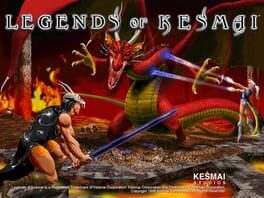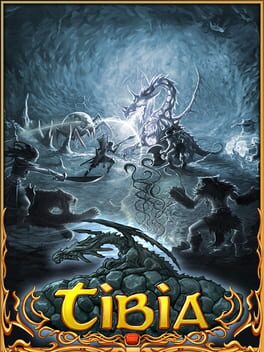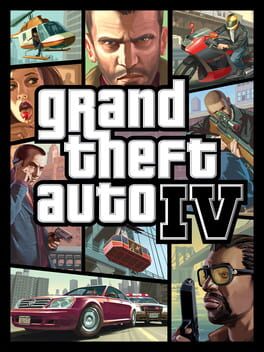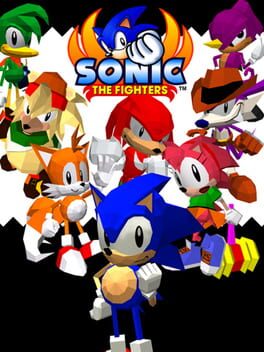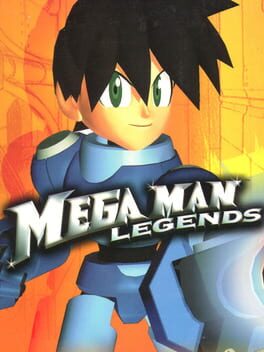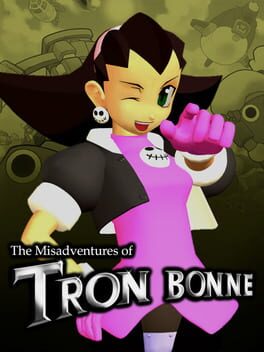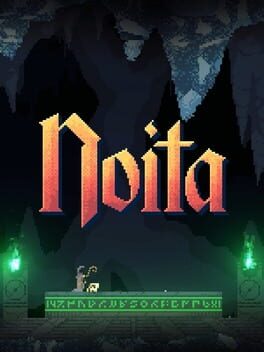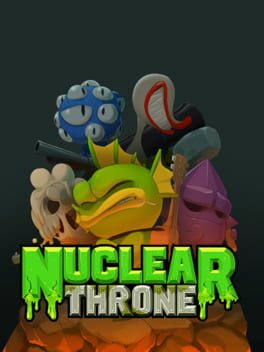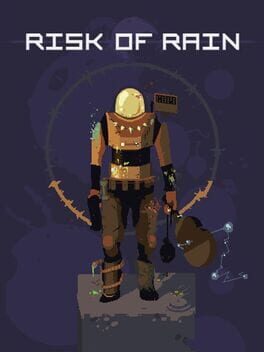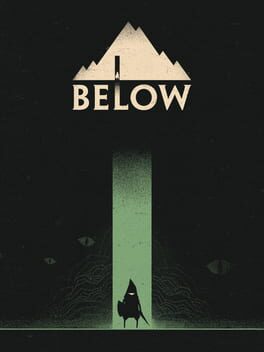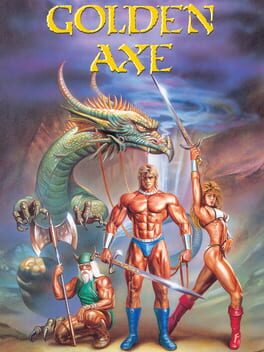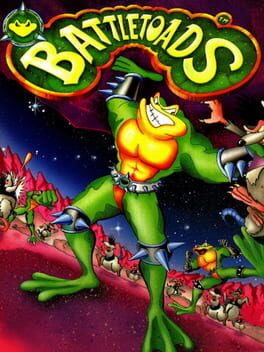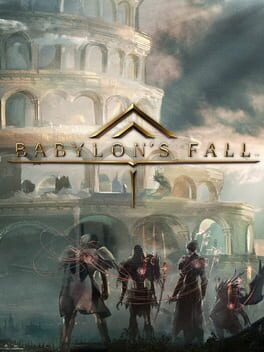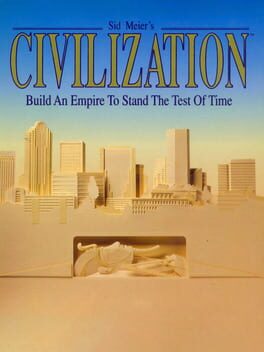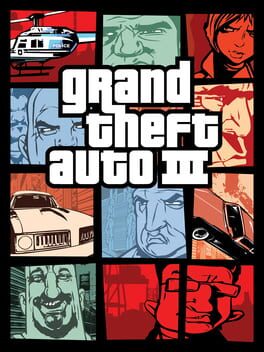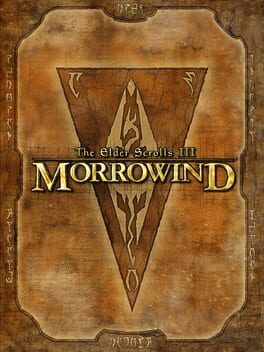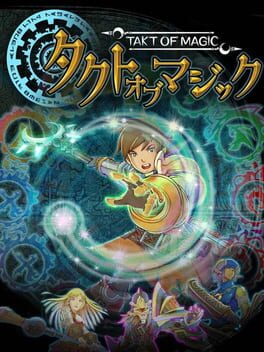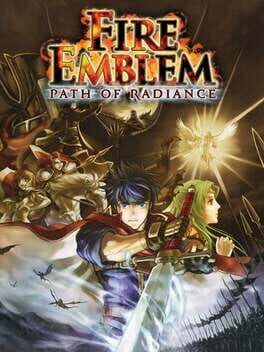Snappington1
204 reviews liked by Snappington1
Cookie Clicker
2013
So uhh…there was this one time in my history class, and I was sat pretty much in the middle whilst this other kid was sat at the very front. Now this kid had a laptop because his handwriting was awful and the teachers had agreed to give him a laptop so he could write better. Now this kid loved to use the laptop in history, and any chance he got you would bet that he would be doing something that he shouldn’t be on it. It wasn’t anything horrid or crude, it was just what any normal young kid with a laptop would do: either play games, watch YouTube videos or just mess around on Microsoft paint. But this one lesson, we were learning about history in dissection. Personally anything to do with surgery always makes me feel sick and I tried to find any sort of way to distract myself from the lesson this one time. Thankfully the kid who was in front of me with his laptop was playing a game: cookie clicker. The kid slowly worked himself up, he got more and more auto clickers, he increased his building levels and buildings. The more and more he played the more I got mesmerised and eventually I was probably more glued to his screen than he was. Eventually the kid clicked on that I was watching him play the game, and slowly but surely he started flexing his ability. He got even more factory’s, even more auto clickers, and got achievement after achievement. Eventually after it all, he had reached the end. The game asked him if he wanted to ascend and just when he was about to click yes…the lesson had ended. We both got up, looked at each other, and burst out laughing. I’m sure to anyone looking we looked like madmen, but in the end it was probably the funniest thing I’d ever slightly been apart of.
Good time waster, chill music, funny ideas, grannies
Good time waster, chill music, funny ideas, grannies
Ion Fury
2019
Hearts of Iron IV
2016
Victoria II
2010
Victoria 3
2022
I asked for a whirling, living, breathing machine, and she gave me the hell I most desired.
Economics is kinda bullshit, okay? I’m a communist, plenty of you fuckers are communists, we’re obligated to believe that if nothing else. But wouldn’t it kinda be neat if economics had something to it, if everything was just supply and demand at various levels of scale, if you could feel the veins within the invisible hand of the market and twist them in any way you liked? Fundamentally, this is what Victoria 3 offers the player: You get to build an economy and make it run so goddamn good that you launch your country’s standard of living into the stratosphere.
The process of industrialization is the beating metal heart of this game. It starts, if you are a weak enough power, at the most basic level: You set up logging camps, use the wood you produce to build tools, use those tools in your logging camps to increase productivity, start mining iron with the tools you built, increase the efficiency of tools using that iron, and on and on it goes. It’s all very straightforward in a line by line description, but fails entirely to capture the dynamic energy that sets this apart from other grand strategy games like it. That energy comes from the populations. You’ll hear this come up whenever people discuss Victoria as a series: It’s all about population management. You want to meet their material needs, provide them with jobs, track what classes of society they come from and who you are empowering, so on and so forth. It’s all about the populations.
But there’s almost a sense that management is the wrong word entirely—left alone, your populations manage themselves. They’ll work on subsistence farms and provide their own needs, and everything will stay at a relatively good equilibrium unless a greater power swoops by and annexes your entire country out of the blue. Whoops! There’s a very real pressure to be better, be stronger, be more capable of resisting imperial powers, and this can only be managed with a directed vision. Pure reaction will never be enough. This is why resistance movements and rebellions in the real world do not merely dissolve once they have achieved their immediate goals—dissolution of the state creates a power vacuum that is just asking to be filled. (Vincent Bevins writes about this phenomena at length in relation to modern mass movements in his excellent new book If We Burn, as a side note. Please read it!)
No, management implies that you are creating from the ground up the forces of society. But these forces arise naturally—they are a structure inherent to any group of people interacting at scale, though they may manifest in different modes. Our role is not to create, but to direct as best we can the immense forces that we already possess. This is the feeling you have when your country begins to industrialize and you see the basic production you had at first start to swirl in self-powering feedback loops, profits seemingly arising from nowhere by the sheer nature of the movement of money between industry and consumer and government. There is no better feeling than when you painstakingly direct the production methods of each factory and construction company and mine, one by one transitioning to the new tools you have access to, causing your country’s productive capacity to explode exponentially, only ever growing bigger and bigger. Your standard of living increases, industrialists and the petite bourgeoisie grow more powerful, and demand more and more—
And so you become a monster, lost to pure momentum.
My favorite thing to do in this game is to play as marginalized and minor powers across the world. It’s incredibly satisfying to do that initial work of building something from nothing. With the way that this game encourages you to think about populations at all times, it almost feels tangible how many people you are pulling out of poverty. But with smaller nations, there’s always a ceiling. This takes one of two forms: resource shortages, or population shortages. The first of these is not such a big deal—this is what trade fundamentally solves. Sometimes you have way too much iron and need more oil. The solution presents itself. But population shortages? If you run into these, you’re fucked.
See, this machine of pure human and industrial momentum is always stealing just a little bit from the future. The process of industrialization is a challenge to outrun the consequences which you necessitate by engaging in industrialization. Your profits come from constant expansion and growth. Your citizens are happier when you are doing more, cutting down more trees, mining more iron, squeezing every last drop of steel out of the resources you have. But what if there is no expansion left in the interior? You can’t build any more factories, you don’t have people to work in them! In fact, given how much of your economy depends on the construction sector, you'll even start to implode, unable to sufficiently create demand for all the goods you've been producing, if you're unable to keep building. How can you continue to compete? If you don’t compete with the global market, they will overtake you, grow more powerful, be able to raise a greater army, and then you will be back where you started—just a minor power swept away by the colonizers and conquerers that surround you. What can you do when you don’t have any of your future left to steal from? You steal it from someone else.
This is the enticing trap of colonialism, for once your country tastes the labor, the goods, the blood of one colony, they will never be satisfied. Interest groups are often a mechanic that feels a little half-baked and oversimplified, but on this point they feel fundamentally correct: Basically no group within a colonial power opposes colonization. It’s just objectively profitable for them, when the world is filtered through this lens of economics to such an extent that all is consumed by it. Even when your society has more than anyone else in the world, they still desire to just consume more and more and more. I’d almost say this game is cynical if it wasn’t so fucking on point. When the world is all an abstract map of economic affairs, the desire to paint your color across the world is almost natural. For a moment, I understand how we got to where we are.
But then I zoom in on the world and it comes alive, and I can understand no longer.
- - -
A post-script as thanks for reading:
I find recently that most of my media analysis tends to find itself drawn magnetically to human nature as a concept in one way or another. Sometimes it's an obvious connection, like Killers of the Flower Moon, and sometimes it's a little more obtuse, as with this review. But even here we made the connection at the end: "the desire to paint your color across the world is almost natural." I think this actually comes full circle to the comment I made about economics being bullshit at the beginning of the review, a connection which I'll explore in a moment. I think it's probably a very important idea to focus on because it seems to deeply underpin basically all of how we understand the world, and I think we don't get to the center of that nearly often enough. How can you deconstruct an ideology without understanding its foundations?
There's this pretty fundamental assertion that every regressive, conservative, etc. etc. likes to make in their art, which is that on some level This Is Just How Things Are, which always takes the form of telling us that some particular tendency is just part of human nature. Isn't it just so convenient that those who did horrific evil in order to claw their way to the top of hegemony, and who continue to employ great violence at their behest in order to maintain that power, didn't really do anything bad because if everyone does something how can it really be bad? It's a deeply false but psychologically necessary claim: That the evil I do is not evil, and you would have done it too if you were me.
It's the same reduction that is made to turn humans into economic machines—understanding us simply as a set of material inputs and outputs who consume and produce things. It's a claim that if you had the same material conditions, you would necessarily do the same thing. But this denies the "you" in you, doesn't it? Think about yourself for a moment. Find where "you" are, the consciousness and the observer of the consciousness, whatever that means to you. How is this amorphous primal beast of a thing reducible to deterministic inputs and outputs? Do you really believe that? This is merely an assertion of their axioms of truth onto yours, a refusal to negotiate reality with you but instead an insistence of their own experience, a complete and utter denial of the real of the subjective, of the concept of a You! It is the ultimate solipsism, the greatest sin, the making of man into machine with a computerized brain, the ooze of capital left behind in the creases of everyone's brain from its utter hegemonic power in the ideological realm.
All of which is why I say that economics (or rather, the mainstream capitalist understanding of economics) is bullshit—it is a fundamental reduction of humans to being consumers and producers, and that can never meaningfully capture the picture of any social structure that emerges from how we interact with one another. You've gotta look elsewhere to understand that. It's stuck too deep in the realm of asserting its own axioms, that great circular reasoning, to hold any real truth. It's fundamentally inflexible and immobile in a way that the absolute reality of what we call a political economy can never be reduced to.
Victoria 3 captures all of this incredibly concretely, a little glimpse of the irreducibility behind economy, the first of the shapes in its stages of dialectical development on the way to understanding what that irreducibility even is. It's an astounding achievement, even if it is limited at times by the boundaries of its understanding and imagination.
Economics is kinda bullshit, okay? I’m a communist, plenty of you fuckers are communists, we’re obligated to believe that if nothing else. But wouldn’t it kinda be neat if economics had something to it, if everything was just supply and demand at various levels of scale, if you could feel the veins within the invisible hand of the market and twist them in any way you liked? Fundamentally, this is what Victoria 3 offers the player: You get to build an economy and make it run so goddamn good that you launch your country’s standard of living into the stratosphere.
The process of industrialization is the beating metal heart of this game. It starts, if you are a weak enough power, at the most basic level: You set up logging camps, use the wood you produce to build tools, use those tools in your logging camps to increase productivity, start mining iron with the tools you built, increase the efficiency of tools using that iron, and on and on it goes. It’s all very straightforward in a line by line description, but fails entirely to capture the dynamic energy that sets this apart from other grand strategy games like it. That energy comes from the populations. You’ll hear this come up whenever people discuss Victoria as a series: It’s all about population management. You want to meet their material needs, provide them with jobs, track what classes of society they come from and who you are empowering, so on and so forth. It’s all about the populations.
But there’s almost a sense that management is the wrong word entirely—left alone, your populations manage themselves. They’ll work on subsistence farms and provide their own needs, and everything will stay at a relatively good equilibrium unless a greater power swoops by and annexes your entire country out of the blue. Whoops! There’s a very real pressure to be better, be stronger, be more capable of resisting imperial powers, and this can only be managed with a directed vision. Pure reaction will never be enough. This is why resistance movements and rebellions in the real world do not merely dissolve once they have achieved their immediate goals—dissolution of the state creates a power vacuum that is just asking to be filled. (Vincent Bevins writes about this phenomena at length in relation to modern mass movements in his excellent new book If We Burn, as a side note. Please read it!)
No, management implies that you are creating from the ground up the forces of society. But these forces arise naturally—they are a structure inherent to any group of people interacting at scale, though they may manifest in different modes. Our role is not to create, but to direct as best we can the immense forces that we already possess. This is the feeling you have when your country begins to industrialize and you see the basic production you had at first start to swirl in self-powering feedback loops, profits seemingly arising from nowhere by the sheer nature of the movement of money between industry and consumer and government. There is no better feeling than when you painstakingly direct the production methods of each factory and construction company and mine, one by one transitioning to the new tools you have access to, causing your country’s productive capacity to explode exponentially, only ever growing bigger and bigger. Your standard of living increases, industrialists and the petite bourgeoisie grow more powerful, and demand more and more—
And so you become a monster, lost to pure momentum.
My favorite thing to do in this game is to play as marginalized and minor powers across the world. It’s incredibly satisfying to do that initial work of building something from nothing. With the way that this game encourages you to think about populations at all times, it almost feels tangible how many people you are pulling out of poverty. But with smaller nations, there’s always a ceiling. This takes one of two forms: resource shortages, or population shortages. The first of these is not such a big deal—this is what trade fundamentally solves. Sometimes you have way too much iron and need more oil. The solution presents itself. But population shortages? If you run into these, you’re fucked.
See, this machine of pure human and industrial momentum is always stealing just a little bit from the future. The process of industrialization is a challenge to outrun the consequences which you necessitate by engaging in industrialization. Your profits come from constant expansion and growth. Your citizens are happier when you are doing more, cutting down more trees, mining more iron, squeezing every last drop of steel out of the resources you have. But what if there is no expansion left in the interior? You can’t build any more factories, you don’t have people to work in them! In fact, given how much of your economy depends on the construction sector, you'll even start to implode, unable to sufficiently create demand for all the goods you've been producing, if you're unable to keep building. How can you continue to compete? If you don’t compete with the global market, they will overtake you, grow more powerful, be able to raise a greater army, and then you will be back where you started—just a minor power swept away by the colonizers and conquerers that surround you. What can you do when you don’t have any of your future left to steal from? You steal it from someone else.
This is the enticing trap of colonialism, for once your country tastes the labor, the goods, the blood of one colony, they will never be satisfied. Interest groups are often a mechanic that feels a little half-baked and oversimplified, but on this point they feel fundamentally correct: Basically no group within a colonial power opposes colonization. It’s just objectively profitable for them, when the world is filtered through this lens of economics to such an extent that all is consumed by it. Even when your society has more than anyone else in the world, they still desire to just consume more and more and more. I’d almost say this game is cynical if it wasn’t so fucking on point. When the world is all an abstract map of economic affairs, the desire to paint your color across the world is almost natural. For a moment, I understand how we got to where we are.
But then I zoom in on the world and it comes alive, and I can understand no longer.
- - -
A post-script as thanks for reading:
I find recently that most of my media analysis tends to find itself drawn magnetically to human nature as a concept in one way or another. Sometimes it's an obvious connection, like Killers of the Flower Moon, and sometimes it's a little more obtuse, as with this review. But even here we made the connection at the end: "the desire to paint your color across the world is almost natural." I think this actually comes full circle to the comment I made about economics being bullshit at the beginning of the review, a connection which I'll explore in a moment. I think it's probably a very important idea to focus on because it seems to deeply underpin basically all of how we understand the world, and I think we don't get to the center of that nearly often enough. How can you deconstruct an ideology without understanding its foundations?
There's this pretty fundamental assertion that every regressive, conservative, etc. etc. likes to make in their art, which is that on some level This Is Just How Things Are, which always takes the form of telling us that some particular tendency is just part of human nature. Isn't it just so convenient that those who did horrific evil in order to claw their way to the top of hegemony, and who continue to employ great violence at their behest in order to maintain that power, didn't really do anything bad because if everyone does something how can it really be bad? It's a deeply false but psychologically necessary claim: That the evil I do is not evil, and you would have done it too if you were me.
It's the same reduction that is made to turn humans into economic machines—understanding us simply as a set of material inputs and outputs who consume and produce things. It's a claim that if you had the same material conditions, you would necessarily do the same thing. But this denies the "you" in you, doesn't it? Think about yourself for a moment. Find where "you" are, the consciousness and the observer of the consciousness, whatever that means to you. How is this amorphous primal beast of a thing reducible to deterministic inputs and outputs? Do you really believe that? This is merely an assertion of their axioms of truth onto yours, a refusal to negotiate reality with you but instead an insistence of their own experience, a complete and utter denial of the real of the subjective, of the concept of a You! It is the ultimate solipsism, the greatest sin, the making of man into machine with a computerized brain, the ooze of capital left behind in the creases of everyone's brain from its utter hegemonic power in the ideological realm.
All of which is why I say that economics (or rather, the mainstream capitalist understanding of economics) is bullshit—it is a fundamental reduction of humans to being consumers and producers, and that can never meaningfully capture the picture of any social structure that emerges from how we interact with one another. You've gotta look elsewhere to understand that. It's stuck too deep in the realm of asserting its own axioms, that great circular reasoning, to hold any real truth. It's fundamentally inflexible and immobile in a way that the absolute reality of what we call a political economy can never be reduced to.
Victoria 3 captures all of this incredibly concretely, a little glimpse of the irreducibility behind economy, the first of the shapes in its stages of dialectical development on the way to understanding what that irreducibility even is. It's an astounding achievement, even if it is limited at times by the boundaries of its understanding and imagination.
Ion Fury
2019
Goat Simulator
2014
You know when something is funny because it's just dumb enough but it somehow worked? That WAS Goat Simulator.
Then they did the next typical thing where they somehow started taking it too seriously and tried to make it more than it is.
The fact that there are more in this "series" makes this first one endlessly less funny - like a comedian who keeps the same shtick for too many years.
Then they did the next typical thing where they somehow started taking it too seriously and tried to make it more than it is.
The fact that there are more in this "series" makes this first one endlessly less funny - like a comedian who keeps the same shtick for too many years.
